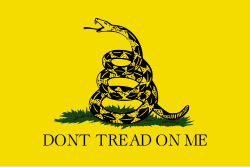Orthodox Christian doctrine teaches
creation ex nihilo (out of nothing), which creates the problem of evil: how could an all-good God create evil? Or, more to the point this week, how could God allow or
cause an earthquake and tidal wave that have caused so much death, destruction, and suffering?
LDS theology teaches that: like evil, matter has always existed and creation was
organization; likewise, individual identifiable identity has always existed in some form, one purpose of mortality is for the spirit children of a heavenly Father to obtain physical bodies, and God is an exalted resurrected Man. (
Doctrine & Covenants 93:29-35;
Abraham 3:23-28;
Doctrine & Covenants 130:22); Christ's redemptive mission was to provide a way back to our Father through the resurrection (because of Christ's resurrection, all who are born will be resurrected -- death is not the end;
Alma 40), and the atonement (the Savior suffered for our sins so we can become clean and worthy to return and remain in the Father's presence;
Doctrine & Covenants 19:16-19;
2 Nephi 9); God's plan for our happiness requires freedom to choose; one third of the spirit children of our heavenly Father rebelled against Him and followed Lucifer who promised that all would be saved, that he would be their Savior, and that he would force all to follow God; Jesus offered to implement the Father's plan which provided for freedom to choose, with the reality that not all would choose to follow God; Lucifer became Satan and he and his spirit hosts seek to thwart God's plan. (
2 Nephi 2;
Doctrine & Covenants 93:30-32;
Doctrine & Covenants 76:25-29).
This theological backdrop helps explain the problem of evil: like matter, evil has always existed. As for God and suffering, the recent earthquake and resulting tidal wave need not be seen either as God's judgment or as proof that there
is no God (or worse, that he is a
malevolent God). Death is not the end (indeed, God's plan has provided the escape from death). Human suffering is not without purpose (mortality is temporary and God has promised eternal happiness for those who endure --
Revelation 21:4;
Doctrine & Covenants 121:7-8;
Doctrine & Covenants 122:5-7).
Instead, it seems to me the event can serve at least three purposes: (1) provide an unprecedented opportunity for international cooperation and
service to the victims (see LDS-organized efforts
here, and
here); (2) serve as a reminder that mortal life is fragile and we don't control the elements; and (therefore) (3) turn us to God.
After the
Teton Dam broke in Idaho in 1976, thousands lost homes. A church leader at a public meeting of victims said that he had come to answer the question, "Why has this happened?" The answer, he said, is "because the dam broke."
Likewise, the disaster in Asia happened because of the earthquake. If its size and damage were "biblical", even according to secular news sources (
Newsweek), perhaps it should turn us to God. "Biblical proportion" events
should put the fear of God in us. But not just because something similar could happen to us (it could). Because we should have been paying attention all along. It's a geological wakeup call. A divine message: "All's
not right with the world. But God is in his heaven. And we need him -- now more than ever."
Earthquakes and tidal waves are a sign of the times before the second coming of the Messiah:
"For after your testimony cometh the testimony of earthquakes, that shall cause groanings in the midst of her, and men shall fall upon the ground and shall not be able to stand.
"And also cometh the testimony of the voice of thunderings, and the voice of lightnings, and the voice of tempests, and the voice of the waves of the sea heaving themselves beyond their bounds.
"And all things shall be in commotion; and surely, men’s hearts shall fail them; for fear shall come upon all people.
"And angels shall fly through the midst of heaven, crying with a loud voice, sounding the trump of God, saying: Prepare ye, prepare ye, O inhabitants of the earth; for the judgment of our God is come. Behold, and lo, the Bridegroom cometh; go ye out to meet him."
(
Doctrine & Covenants 88:89-92; emphasis added).
God's specific prophecy of such calamities in our day helps establish that he
is God and can be trusted. Therefore, such events should not leave us questioning God's existence or love. They should not turn us away from him -- but
toward him. His plan of happiness for his children included sending his Son to rescue us from mortal suffering. (
John 3:16). Indeed, the sinless Son suffered unjustly -- he was sinless, but willingly paid the price for our sins. What, then, can we tell him about suffering?
His suffering was for an eternal purpose: our eternal life and joy. His death and resurrection made possible all of the reunions that matter: we
will see our lost loved ones again. Likewise, he taught us to reach out to others to relieve their suffering. (
Matthew 7:12). May we hear his voice, turn to him, and serve his purposes as we serve those who suffer. And may we have faith in the ultimate outcomes he promises.




